Move For Hunger Helps Movers Feed Communities
Moving companies can have an impact on every community they touch. Whether it be a larger national company or a local one, movers help change neighborhoods one job at a time. This kind of reach gives them a unique way to combat hunger across the country.
Move For Hunger is a non-profit organization that uses the individual power of moving companies for the greater good. By partnering with MFH, movers can donate boxes of non-perishable food to pantries that serve local communities.
We spoke to Dan Beam, Move For Hunger’s communications manager, to understand how the organization works and how moving companies can get involved.
Tell us a little about MFH. How does it work and what makes the organization special?
Move For Hunger is a national non-profit organization that has created a sustainable way for the relocation industry to reduce food waste and fight hunger. For the past 10 years, we've been working with moving companies, real estate professionals, corporate housing providers, relocation management companies, and multi-family apartment communities to collect non-perishable food from people who are moving. We deliver it to food banks across the U.S. and Canada.
The thing that makes Move For Hunger so special is the simplicity of the program. Anyone who's ever worked in the moving industry can tell you just how much people throw away when they move. This includes clothes, furniture, and, unfortunately, perfectly good food. We think most people would much rather donate those things. But moving is hectic and not everyone has the time to make a trip to Goodwill or a local food pantry. When someone books a company that is a member of Move For Hunger, however, doing good becomes so much easier.
All the moving company has to do is leave a box with a Move For Hunger label in the home’s kitchen. Then the residents fill it with any unopened, non-perishable food they'd like to donate. From there it gets delivered to a local food bank or pantry to ensure that all of the donations stay within the community.
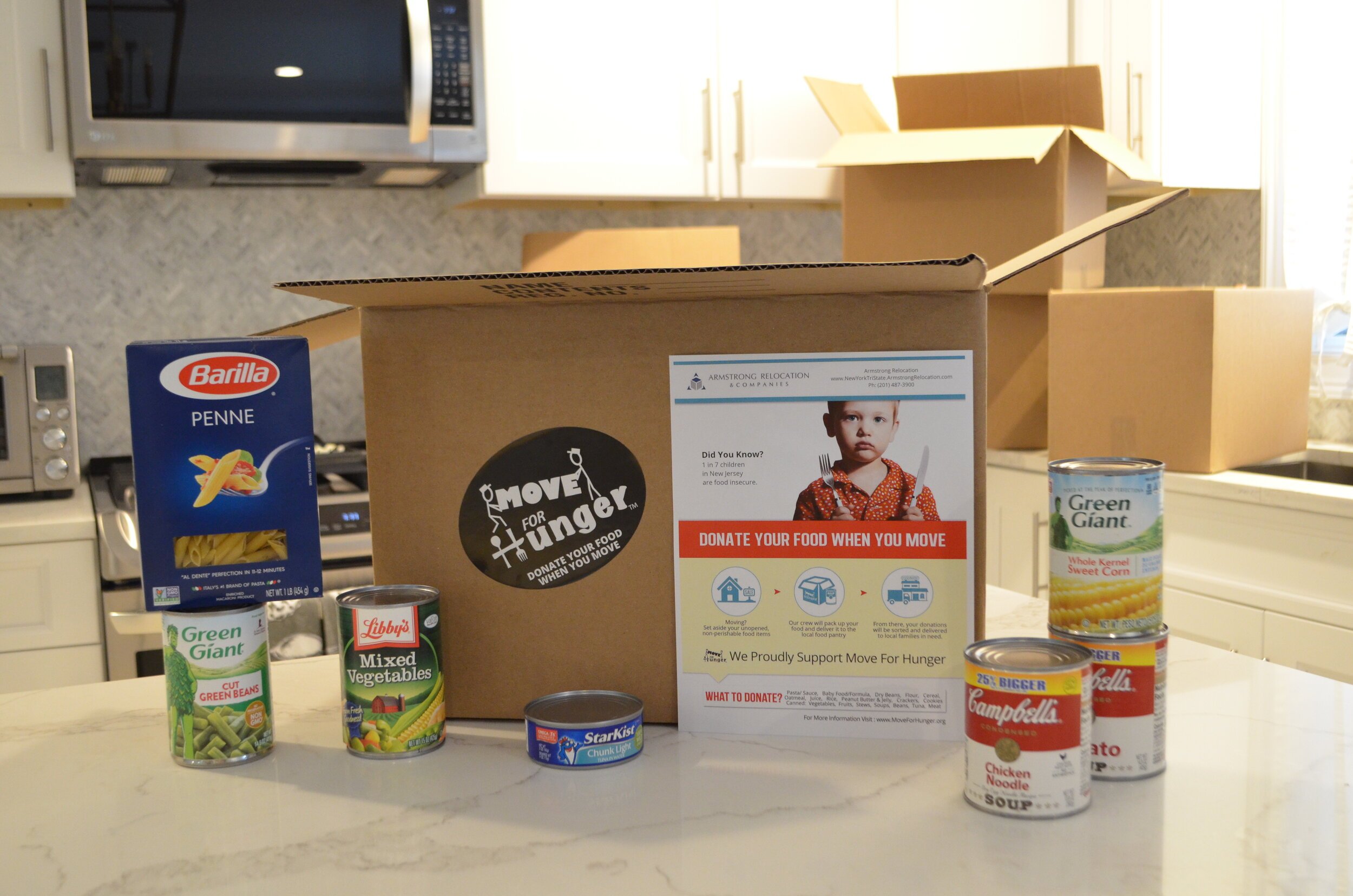
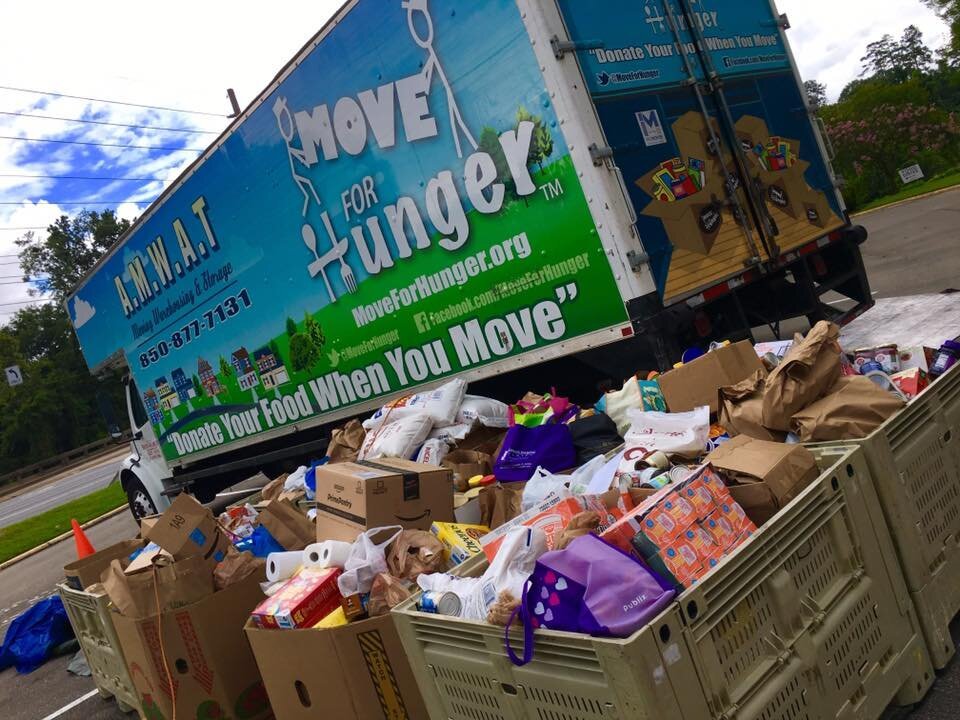
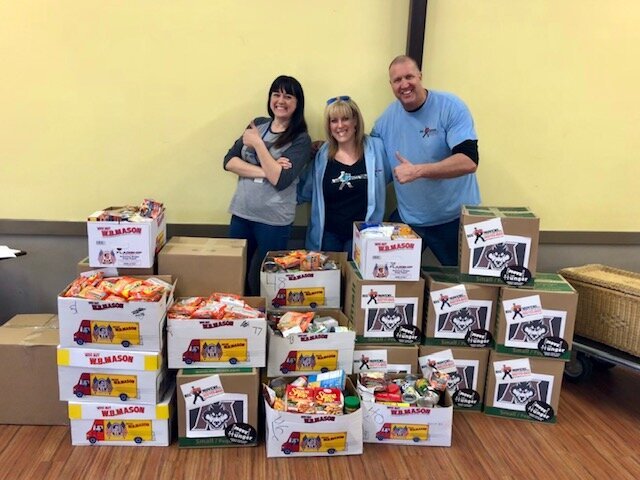
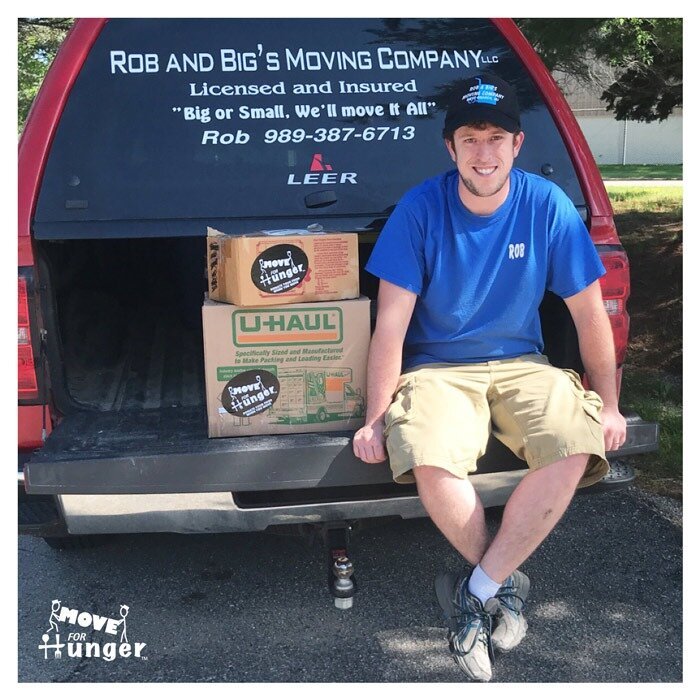
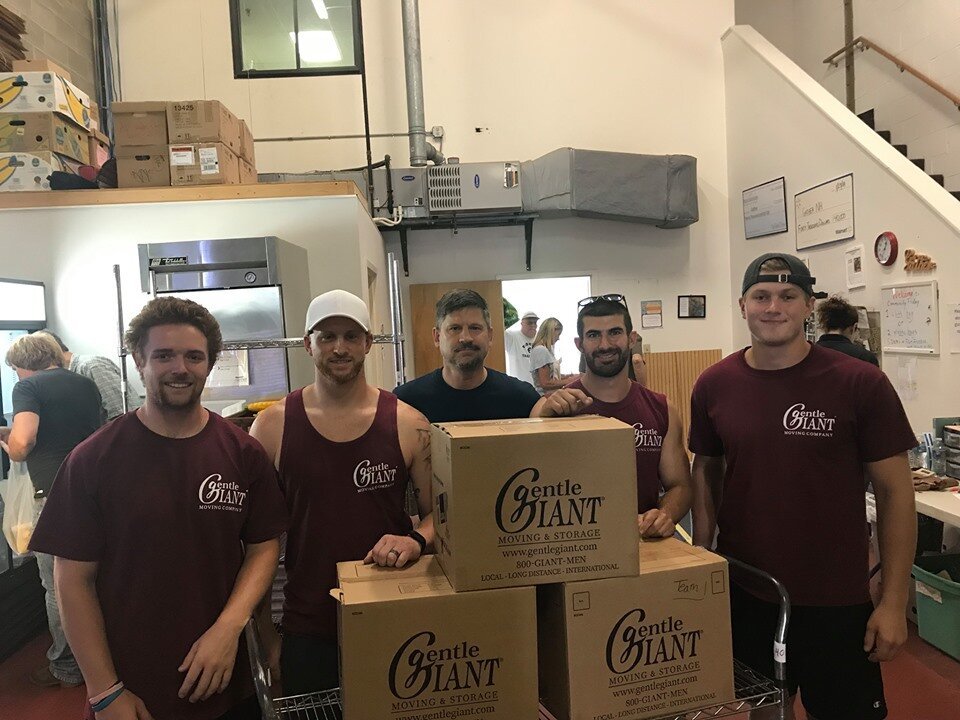
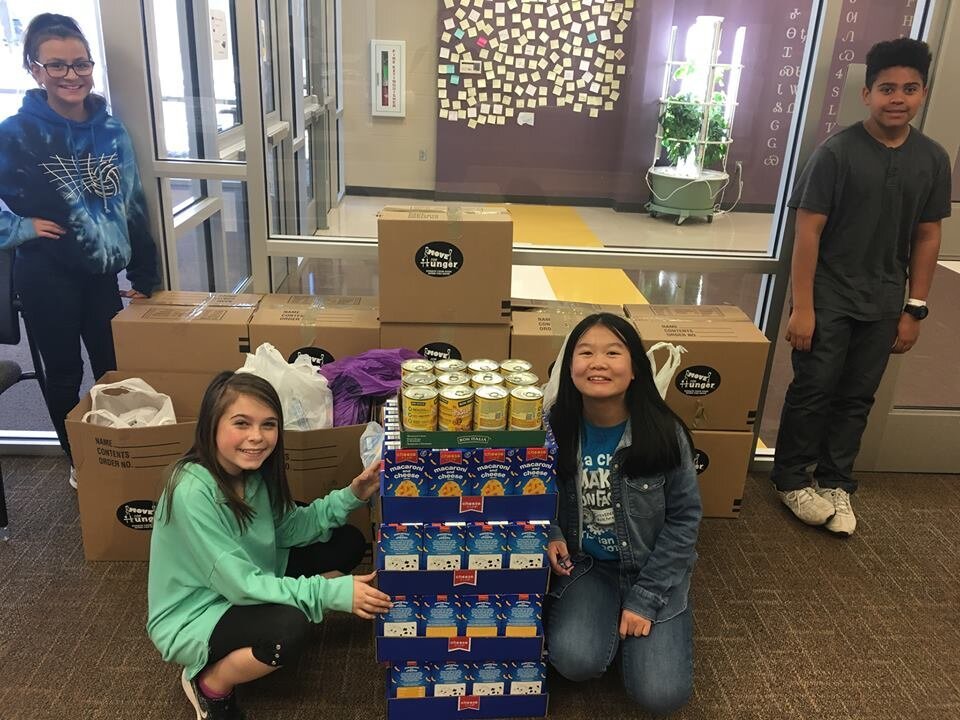
Why should moving companies partner with MFH?
There are three primary reasons. First, it's important. More than 40 million Americans are facing hunger every day. Still, 40% of the food in the United States is wasted every year. The Move For Hunger model provides moving companies with a way to address both problems by seamlessly integrating our program into their day-to-day business.
Second, customers want to work with socially-responsible companies. Our members tell us time and time again about how excited people get when they mention Move For Hunger. Doing good is good for business.
Finally, joining Move For Hunger is a wonderful way to bring your crew closer together. In addition to the core food collection program, we also encourage members of our network to participate in different activities. Members can organize food drives, host fundraisers, turn miles into meals by running or walking in a local 5K, and other fun employee engagement activities. All these things will help to boost morale and build camaraderie.
How many companies does MFH currently partner with and how much food have you collected to date?
Nearly 1,000 moving companies from all across the United States and Canada are currently members of our network. Together, they have collected 15.3 million pounds of food, which is equivalent to 12.7 million meals.
That’s beyond incredible. How can our partners get involved?
Getting involved with Move For Hunger is simple. Movers and moving companies should head to our Mover Enrollment page and fill out the necessary information to get started. Every moving company that joins our network makes a Commitment to the Cause. This is a $300 tax-deductible donation that will help support our programs. From there, we'll add you to our Find a Mover Map and send you a Welcome Kit. The kit includes everything you'll need to start collecting donations. If you'd like to learn more, please contact our Community Engagement Manager Raquel Yuhas. She can answer any questions you may have about the program.

